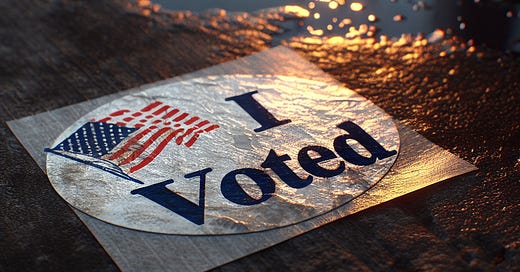What Trump's Victory Means for America
A few thoughts on the election and where we go from here
In the 2024 election, Donald Trump beat Kamala Harris by sweeping all seven swing states. He won the popular vote as well, but by a relatively slim margin. When all the votes are counted (get it together California!) his margin is predicted to be only 1.5 points. For months the polls told us we were in a very close election and that’s exactly what we go…
Keep reading with a 7-day free trial
Subscribe to American Storylines to keep reading this post and get 7 days of free access to the full post archives.




